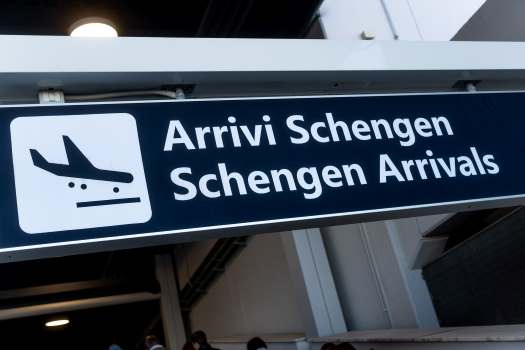France Travel Essentials: Visa Requirements, Documents, and Travel Insurance
Learn everything you need to know about France's travel requirements for US citizens, from visa regulations and necessary documents to important safety tips.
Travel Requirements for France: A Comprehensive Guide
- US citizens generally do not need a visa for short stays in France but need a valid passport.
- Besides a passport, travelers should have proof of return or onward travel, sufficient funds, and accommodation details.
- Also, check for current health advisories and vaccination requirements before your trip.
France is one of the world's most popular travel destinations, attracting millions of visitors each year to experience its rich culture, cuisine, and history. However, before booking your trip, it's important to understand France travel requirements for US citizens.
The key travel requirements for France generally revolve around passport validity, visa types, and documentation needed upon arrival. By planning ahead and ensuring you meet all necessary requirements, you can help make your trip to France more enjoyable.
Do I Need a Visa to Travel to France?
For US citizens, a visa is not required for short stays in France. You can stay in France and other Schengen Area countries for up to 90 days within a 180-day period for tourism, business, or family visits without a visa.
However, it's important to note that this is subject to change, so it is recommended to check the US Department of State’s Travel Guidelines for France along with the Government of France’s Visa website for the most up-to-date information before your trip.
Exceptions and Special Cases
- Longer Stays: If you plan to stay in France for more than 90 days you will need to apply for a long stay visa (visa de long séjour). This is for those who want to live, work or study in France.
- Work or Study: If you are planning to travel to France for work, internships or study purposes you must apply for the respective visa before you travel. This will usually involve getting a job or a place at an educational institution and getting the necessary paperwork.
- Family Reunification: If you are joining a family member who is a resident of France different visa requirements may apply. You will need to show proof of your relationship and your family member’s residency.
What Documents Do I Need To Travel To France From USA
When traveling to France, ensure you have the following documents:
- Valid Passport: Your passport must be valid for at least three months beyond your planned departure date from France. It should also have at least two blank pages for entry and exit stamps.
- Proof of Return or Onward Travel: You may be asked to show a return ticket or proof of onward travel to another destination. This ensures that you do not overstay your allowed duration.
- Proof of Sufficient Funds: You should have evidence of sufficient financial means to cover your stay in France. This can include bank statements, credit cards, or a letter of financial support.
- Accommodation Details: Have your hotel reservation or proof of accommodation readily available, as you may be required to present this upon entry.
While not mandatory for entry into France, having travel insurance is highly recommended for medical emergencies and other unforeseen circumstances.
From 2025 US citizens will need to apply for ETIAS (European Travel Information and Authorization System) before traveling to France. This is an online process that gives you permission to enter the Schengen Area.
ETIAS is an electronic travel authorization linked to your passport, giving you short term entry to European countries for up to 90 days in any 180-day period. But an ETIAS does not guarantee automatic entry; upon arrival a border guard will check if you meet the entry requirements. So it’s recommended to check you meet all travel requirements for France before you go.
Am I Eligible to Travel to France?
Eligibility to travel to France can be influenced by various factors, and it's crucial to be aware of these to ensure a convenient journey and stay in the country.
The COVID-19 pandemic has introduced several travel restrictions and requirements that travelers must adhere to. These may include vaccination certificates, negative COVID-19 test results, etc.
In addition to COVID-19 requirements, France has specific health entry requirements that may include other vaccinations and medical tests. It is advisable to check both the Centers for Disease Control and Prevention (CDC) and the French Public Health Agency for the most current health advisories and entry requirements.
Knowing and meeting these health requirements and you- should be good to go into France without any health issues. Also, consider buying travel insurance that covers health emergencies as medical care abroad can be expensive.
Before you plan your trip make sure you’re not on any no fly lists or subject to travel restrictions due to legal issues. These can stop you from boarding your flight or entering France. To confirm the status of your travel eligibility, check with the TSA and other relevant authorities.
Do I Need Travel Insurance for France?
While travel insurance is not a mandatory requirement for US citizens visiting France, it is highly recommended. Here are a few important coverages and why they might be essential in your travel insurance for France.
Medical Emergencies: Travel insurance generally provides coverage for medical treatment, hospitalization, and evacuation in case of serious illness or injury. This is particularly important as medical costs in France can be high, and without insurance, you would be responsible for all expenses out of pocket.
Trip Cancellation: If you need to cancel your trip due to unforeseen circumstances, such as illness, injury, or family emergencies, travel insurance can reimburse you for non-refundable expenses, including flights, accommodations, and tours.
Lost or Stolen Belongings: Travel insurance can also offer compensation for lost, stolen, or damaged luggage and personal items. You’ll have to collect receipts of the items, so as to file your claim later.
Travel Delays: Coverage for additional expenses incurred due to flight delays or cancellations, such as accommodation, meals, and transportation. This can be especially useful if your trip is disrupted by unforeseen events like weather conditions or airline strikes.
Things to Avoid When Traveling to France
To ensure a safe and enjoyable trip, here are some things to avoid:
Ignoring Local Customs and Etiquette. When in France, respecting local customs, traditions and social norms is essential. In French culture, manners and courtesy go a long way and not observing these can be seen as rude or impolite.
Not taking Safety Precautions. France, like many other tourist destinations, has its share of petty crime, especially in crowded areas and tourist traps. Be careful to avoid pickpocketing and scams. Consider using a money belt or a crossbody bag with secure zippers to keep your valuables safe. You must stay wary of strangers offering unsolicited help or trying to distract you.
Not obeying the Law. Following French laws is key to not getting into trouble. French traffic laws, alcohol consumption laws, and public behavior rules can be strict. For example, in France, it has been illegal to kiss on a train platform since 1910. Similarly, jaywalking is also illegal in France and you can get fined.
Overpacking. Many old buildings, especially in cities like Paris, don’t have elevators, and you’ll find yourself navigating narrow staircases. Packing light will make it easier to move around and avoid the hassle of carrying heavy bags.
Tips and Advice for Traveling to France
To make the most of your trip to France, consider these tips and advice.
Talk to the locals in French. While many French people speak English, learning a few French phrases will make your experience even better and show respect for the culture. Simple phrases like Bonjour (Hello), Merci (Thank you), and S’il vous plaît (Please) will go a long way in daily life.
Use public transport not taxis: France has a great public transport system, trains, buses and metro, so you can get around cities and regions easily. In Paris the metro is huge and reliable, so you can get to the Eiffel Tower, Louvre Museum etc. with no problem.
For further afield the SNCF trains connect the main cities like Lyon, Marseille and Bordeaux. Consider buying a travel pass like the Paris Visite Pass which gives you unlimited travel within a certain period and will save you time and money.
Go beyond the tourist traps.
While Paris is a must-see with its landmarks, culture and world-class museums, don’t miss out on other beautiful parts of France. You must also visit:
- Provence with its lavender fields and charming villages like Gordes and Roussillon, is a peaceful retreat and great local wines.
- Normandy, with its stunning coastline and historical sites like the D-Day beaches and Mont Saint-Michel, is a mix of natural beauty and history.
- The French Riviera, including Nice and Cannes, is a glamorous beach holiday with Mediterranean flair.
Respect meal times.
French culture is very meal time conscious and understanding this will enhance your dining experience. Lunch is between 12:00 PM and 2:00 PM and dinner is around 7:00 PM. Many restaurants close between lunch and dinner so plan your meals accordingly. Also, in France eating is a leisurely affair and rushing through a meal is considered impolite.
Manage your money well.
In France the official currency is the Euro and for the best exchange rates use ATMs or reputable currency exchange services not airport kiosks. Credit cards are widely accepted especially in Paris but it’s a good idea to carry some cash for small purchases in rural areas.
You must inform your bank of your French travel plans to avoid any issues with your card. France can be expensive especially in touristy areas like the Eiffel Tower or the French Riviera. To save your money plan your budget by visiting free attractions or by eating at local bistros instead of fancy restaurants.
How to Stay Safe in France
When in France you must know the local emergency numbers, 112 for general emergencies and 15 for medical emergencies, these can be lifesavers in case of an emergency.
Although France is generally safe, you must avoid deserted areas at night, keep an eye on your belongings and be careful when using ATMs, especially in touristy areas like the Champs-Élysées in Paris.
Also, France uses Type C and E electrical outlets so bring a suitable adapter and voltage converter, the standard voltage is 230V and the frequency 50Hz. This information will come in handy to ensure that your devices stay charged and accessible.
FAQs About France Travel Requirements For US Citizens
1. Do US citizens need a visa to travel to France?
No, US citizens do not need a visa for short stays up to 90 days within a 180-day period. However, starting in 2025, US citizens might need ETIAS authorization for short-term stays in France and other Schengen Area countries.
2. Is travel insurance required for US citizens visiting France?
Travel insurance is not mandatory but highly recommended for medical emergencies, trip cancellations, lost belongings, and travel delays, when visiting France.
3. What documents are necessary for traveling to France?
Travelers must have a valid passport, proof of return or onward travel, evidence of sufficient funds, and accommodation details for entry into France from the USA.
4. Is it necessary to carry cash while traveling in France?
Yes, carrying some cash is advisable for small purchases, especially in rural areas, as not all vendors accept credit cards, ensuring you can cover incidental expenses.
Also Read: Europe, France, Is it safe: France, Schengen-France

Get AXA Travel Insurance and travel worry free!
Travel Assistance Wherever, Whenever
Speak with one of our licensed representatives or our 24/7 multilingual insurance advisors to find the coverage you need for your next trip. Get an instant quote!




